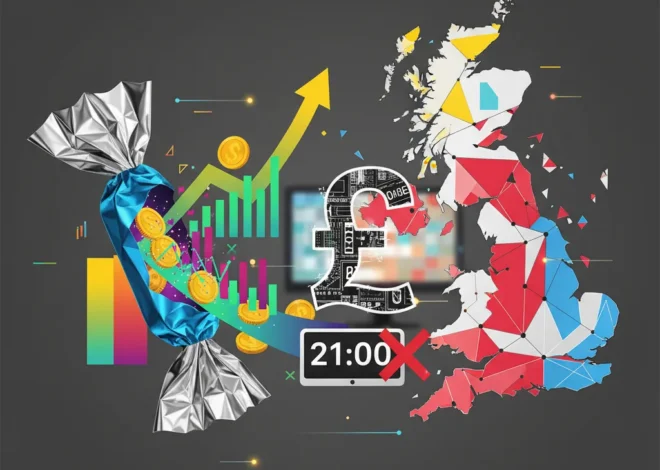
The Summers-Epstein Nexus: A Sobering Lesson in Reputational Risk for Finance and Leadership
In the hallowed halls of academia and the towering skyscrapers of global finance, few names carry as much weight as Lawrence H. Summers. A former U.S. Treasury Secretary, President of Harvard University, and a chief architect of economic policy for decades, Summers has long been a figure whose pronouncements could sway markets and shape national discourse. Yet, in a move that has sent ripples through these elite circles, Summers has quietly stepped back from teaching his fall seminar at Harvard, a decision that coincides with a university investigation into his communications with the late, disgraced financier Jeffrey Epstein.
This development, first reported by the BBC, is more than just a headline about a prominent academic. It is a potent case study in the modern era’s most volatile and unforgiving asset: reputation. For investors, finance professionals, and business leaders, the situation serves as a critical reminder that in today’s hyper-connected world, past associations can carry present-day consequences, impacting everything from personal careers to institutional stability and the very fabric of the global economy.
A Titan’s Trajectory Meets an Unraveling Scandal
To understand the gravity of the situation, one must first appreciate the stature of Larry Summers. His career is a masterclass in navigating the nexus of power, academia, and finance. He served as the 71st Secretary of the Treasury under President Bill Clinton, playing a pivotal role during the Asian financial crisis and the dot-com boom. Later, as Director of the National Economic Council for President Barack Obama, he was a key figure in the response to the 2008 financial crisis.
His tenure as President of Harvard University from 2001 to 2006, though marked by both significant achievements and controversy, further cemented his position as a leading voice in American intellectual life. His influence on economics, monetary policy, and global finance is undeniable. However, it is his connections during and after this period that are now under intense scrutiny.
The investigation at Harvard centers on what have been described as “frequent messages” between Summers and Jeffrey Epstein, a convicted sex offender who cultivated a vast network of powerful and wealthy individuals before his death in 2019. This is not the first time Harvard has had to confront its ties to Epstein. The university previously acknowledged accepting millions in donations from him, leading to a 2020 report that detailed “unprincipled” and “regrettable” institutional failures, as documented by The Harvard Crimson.
Beyond the Balance Sheet: Unearthing the Psychological Allure of Gold
The High Cost of Association: A Timeline of Fallout
The Epstein scandal has left a wide trail of reputational wreckage, ensnaring figures across banking, technology, and academia. The ongoing examination of Summers’ ties is part of a much larger, painful reckoning. The following timeline illustrates how the consequences of associating with Epstein have unfolded for various prominent individuals and institutions, highlighting the long-tail risk involved.
| Date / Period | Key Event | Implication / Institution Affected |
|---|---|---|
| 2019 | JPMorgan Chase CEO Jamie Dimon expresses regret over the bank’s relationship with Epstein. The bank would later pay a $290 million settlement to Epstein’s victims. (Source) | Demonstrates massive financial and reputational liability for the banking sector, even years after the fact. |
| 2020 | Apollo Global Management co-founder Leon Black steps down as CEO after a review reveals he paid Epstein $158 million for financial services. | Highlights the direct impact on leadership within the private equity and investing world. |
| 2022 | Jes Staley resigns as CEO of Barclays following an investigation by UK regulators into his characterization of his relationship with Epstein. | Shows that regulatory bodies are now actively scrutinizing these connections, impacting top-level careers in international finance. |
| 2024 | Larry Summers suspends his teaching duties at Harvard amidst a university probe into his communications with Epstein. | The fallout extends deep into academia, proving no sector is immune from the demand for accountability. |
Why This Is a Red Alert for the Financial World
The Summers-Epstein story is not an isolated incident; it’s a symptom of a paradigm shift in how we evaluate leaders and institutions. For anyone involved in investing, trading, or corporate strategy, there are several crucial takeaways:
- Reputational Risk is Financial Risk: In the age of instant information, a leader’s questionable associations can directly impact the stock market value of their company. Algorithmic trading systems react in microseconds to negative headlines, making reputation a tangible, high-stakes financial metric.
- ESG is More Than Environmental: This scandal is a stark illustration of the ‘S’ (Social) and ‘G’ (Governance) in ESG (Environmental, Social, and Governance) investing. Investors are increasingly demanding to know who is on the board, who advises the company, and what ethical standards are upheld. A failure in governance—like ignoring red flags about a major donor or advisor—can destroy shareholder value.
- Due Diligence Goes Beyond the Balance Sheet: The concept of “know your customer” (KYC) in banking is expanding to “know your network.” Vetting business partners, major clients, and even leadership candidates must now include a thorough examination of their professional and personal networks for potential liabilities.
From Reality TV to a Billion Empire: A Financial Deep Dive into Skims' Meteoric Rise
The Role of Technology in a New Era of Transparency
While the scandal itself is rooted in human decisions, the tools for both exposure and prevention are increasingly found in the world of financial technology. The very emails being investigated are a digital trail, a permanent record that is difficult to erase. This highlights a broader trend where technology is forcing a new level of transparency.
Consider the potential of blockchain technology. While often associated with cryptocurrencies, its core function as an immutable, transparent ledger could revolutionize institutional philanthropy and large-scale financial transactions. Imagine a world where major donations to universities or political entities are recorded on a public blockchain, creating an unalterable audit trail. This would make it far more difficult for institutions to accept and obscure funds from questionable sources.
Furthermore, the field of fintech is developing sophisticated AI-powered tools for enhanced due diligence. These platforms can scan global news, legal filings, social media, and other data sources to create comprehensive risk profiles on individuals and organizations. This proactive approach to identifying reputational risk is shifting from a “nice-to-have” to a “must-have” for compliance departments in major banks and investment firms. This represents a significant evolution in how the financial technology sector helps manage non-financial risks that have very real financial consequences.
Italy's Economic Crossroads: A New 'Miracolo' or a Familiar Malaise?
The Path Forward: Accountability as a Cornerstone
The investigation into Larry Summers’ communications with Jeffrey Epstein is a somber moment for one of the world’s most prestigious universities and one of America’s most influential economists. Regardless of the outcome, the situation itself underscores a profound shift. The unwritten rules that once governed the interactions of the powerful are being rewritten in public, with permanent ink.
For the leaders of today and tomorrow, the message is clear: character, judgment, and the company you keep are no longer soft skills. They are hard assets—or liabilities—that can define a legacy. In an interconnected global economy where trust is the ultimate currency, the ability to demonstrate unimpeachable integrity is becoming the most valuable position on any balance sheet. The real question this leaves for every board member, investor, and CEO is not just “What do the numbers say?” but “Who are we in business with?” Answering that question honestly and thoroughly is the new frontier of risk management.


